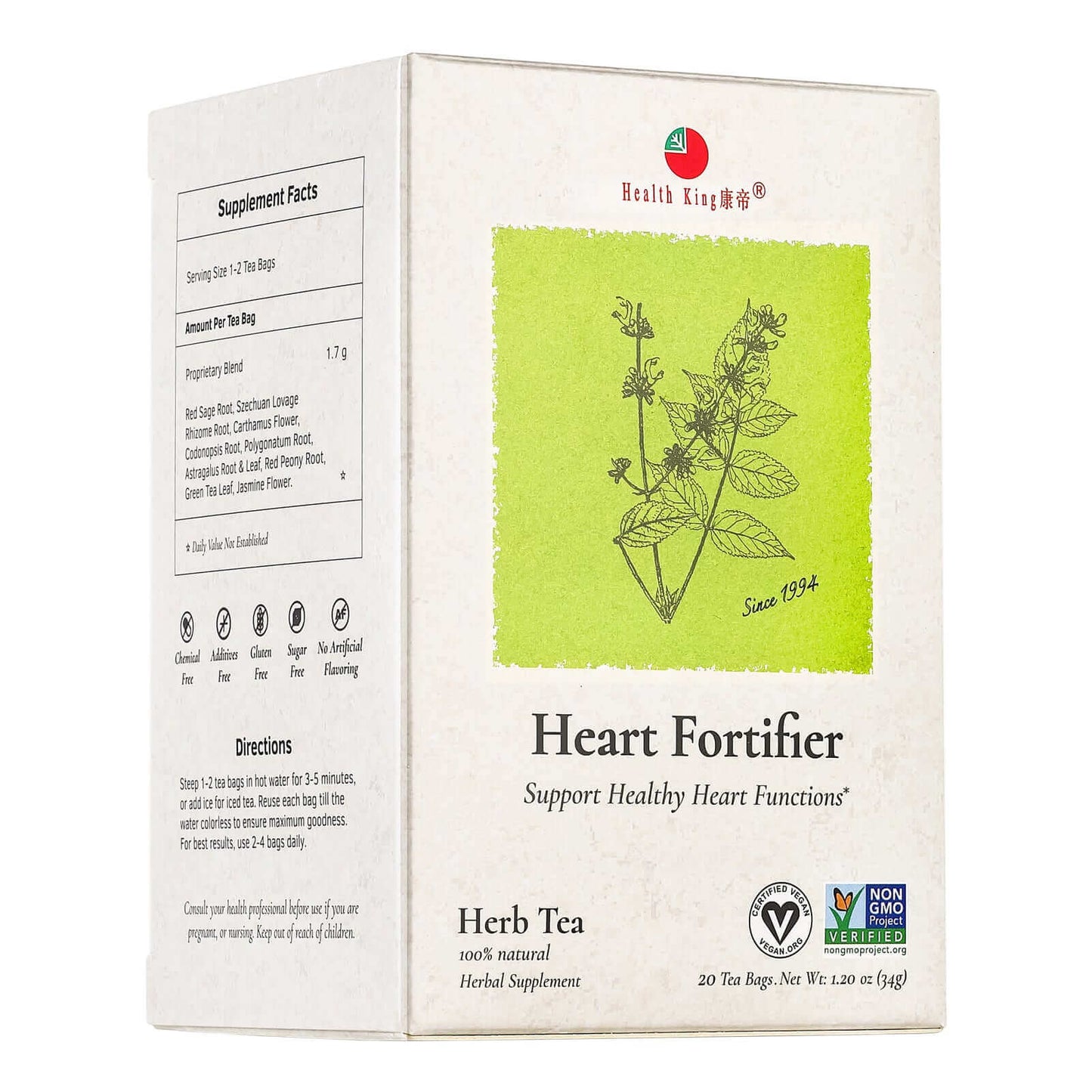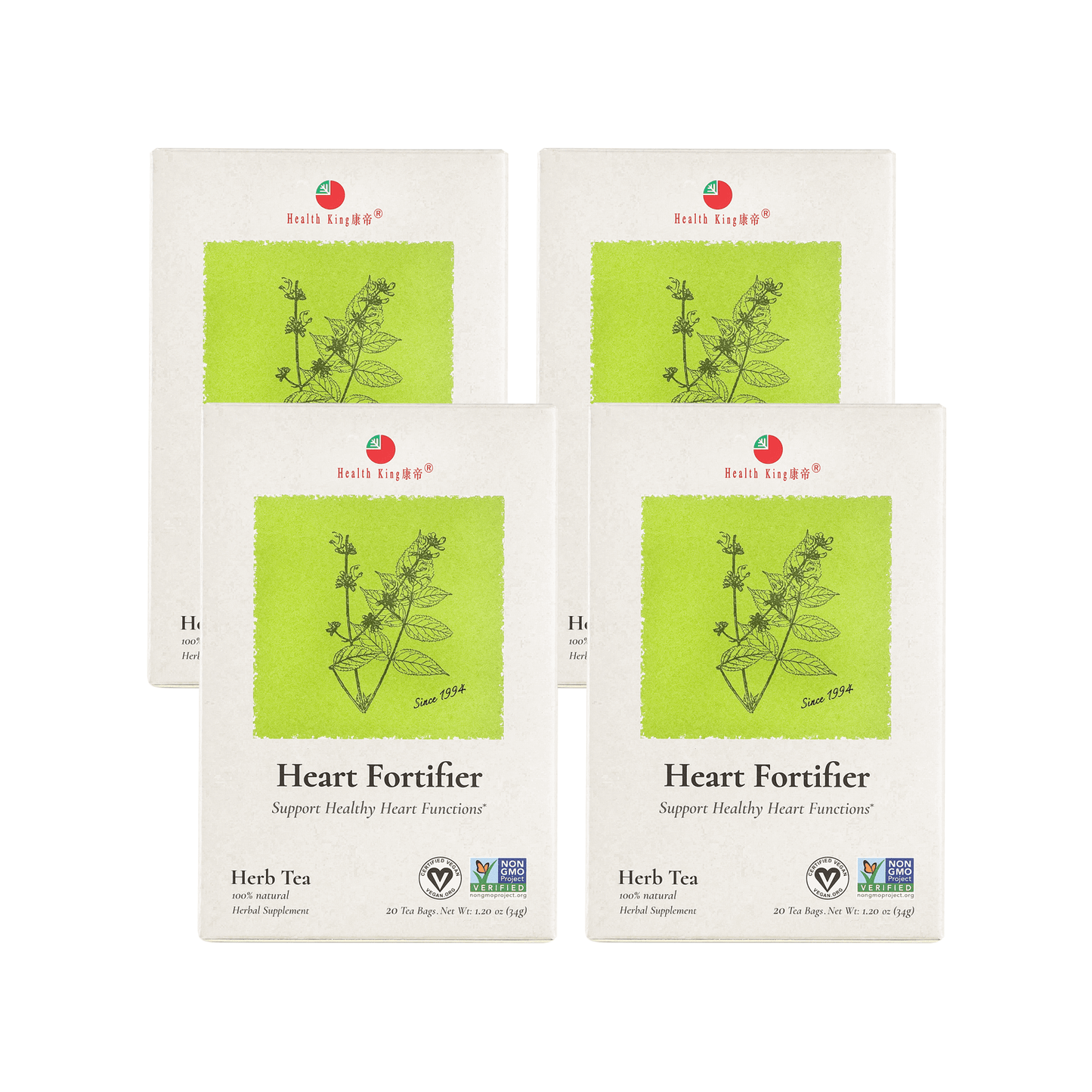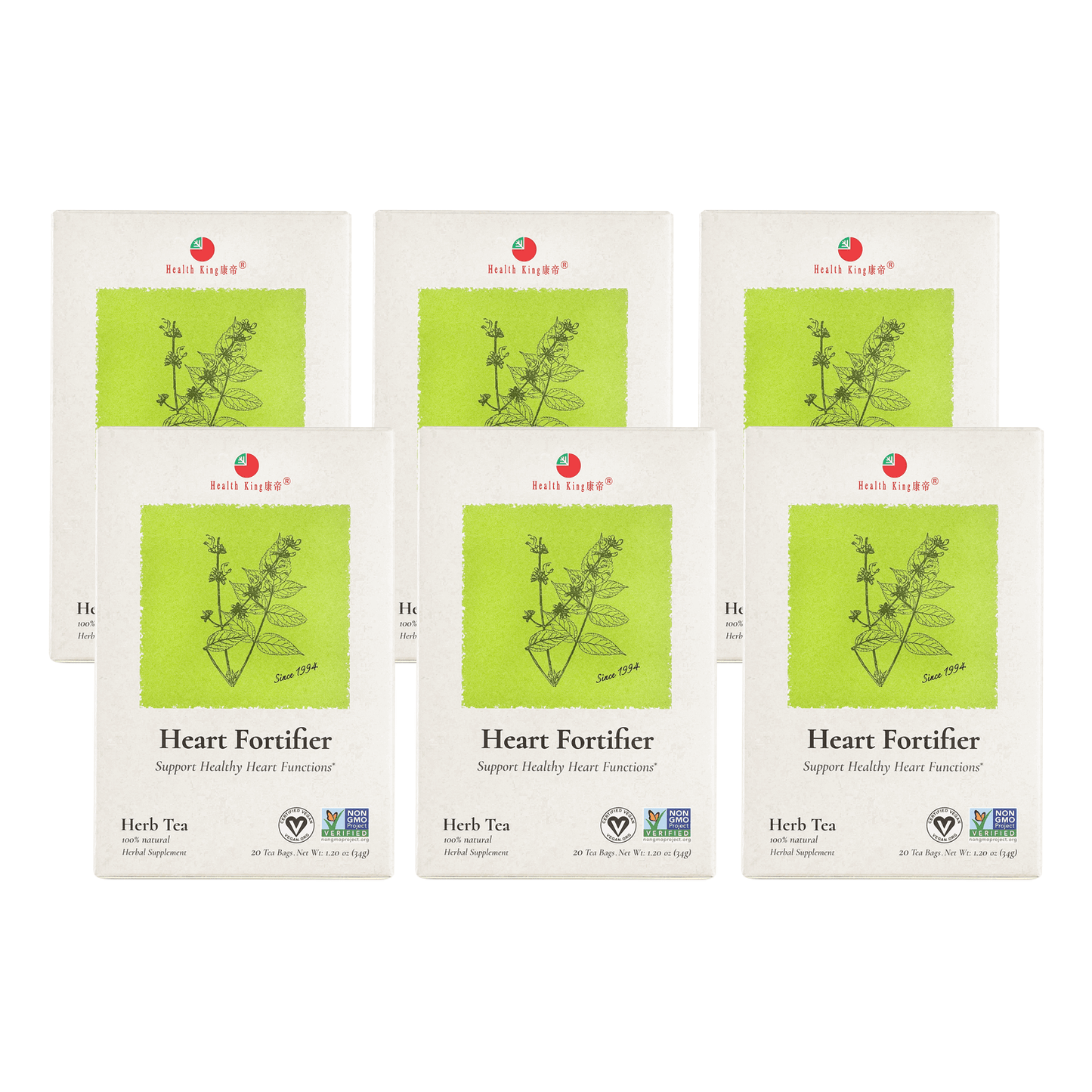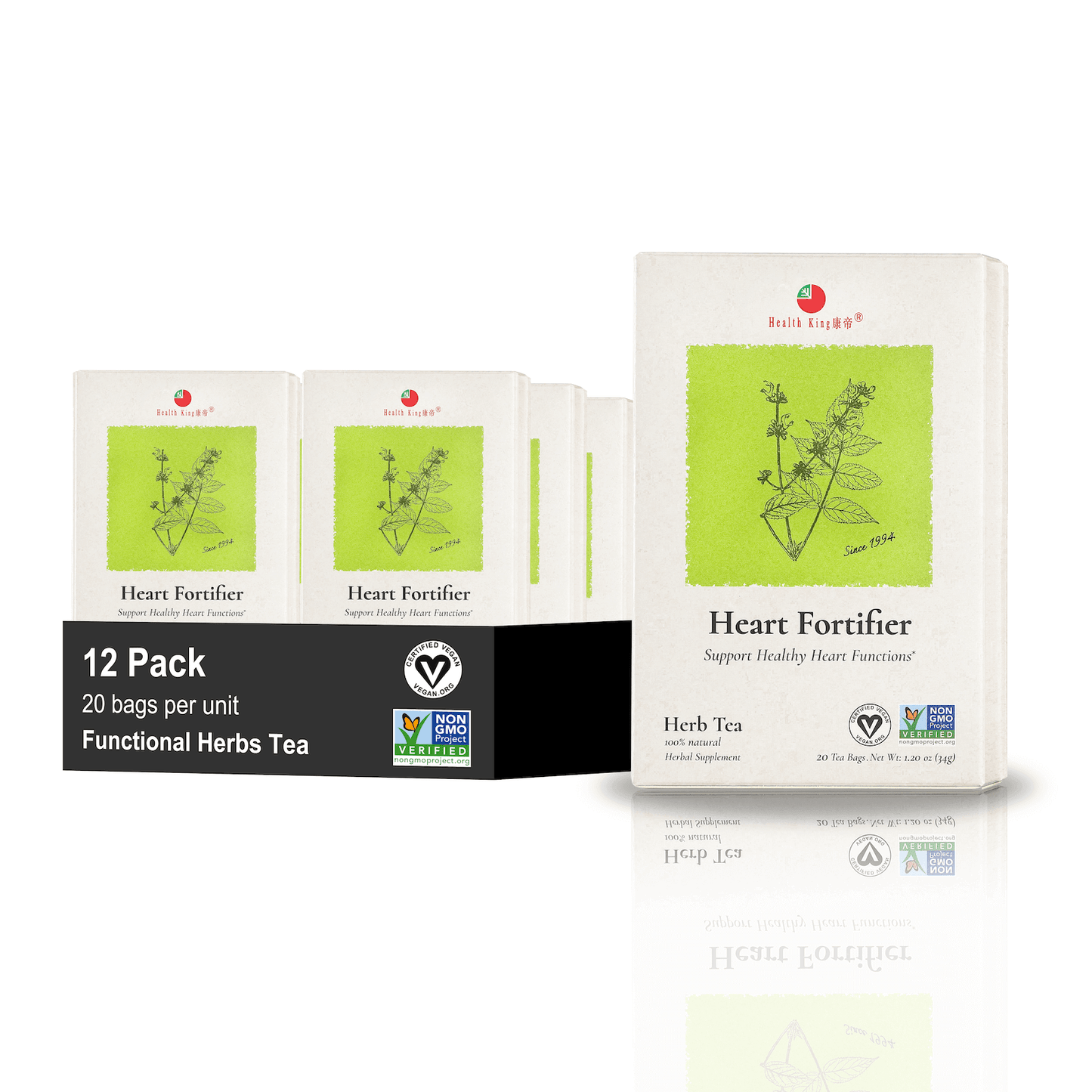
Essential Supplements for Heart Health
Share
Cardiovascular health is a critical component of overall wellness. With heart disease as a leading cause of death globally, taking proactive steps to maintain heart health is more important than ever. Alongside a balanced diet and regular exercise, certain supplements have been identified as beneficial for supporting heart function and reducing the risk of heart conditions. In this article, we'll delve into essential heart health supplements, including snap supplements for heart health and the benefits of Red Sage.
Understanding Heart Health
Before we explore the supplements, it's crucial to understand what makes a heart healthy. The heart is a muscle that requires proper nutrition, regular physical activity, and a balanced lifestyle to function optimally. Factors like high cholesterol, high blood pressure, obesity, and stress can all negatively impact heart health.
The Role of Diet in Heart Health
A heart-healthy diet is rich in fruits, vegetables, lean proteins, and whole grains. It minimizes the intake of saturated fats, trans fats, and excess sodium and sugars. Such a diet can help maintain healthy blood pressure and cholesterol levels, reducing the risk of heart disease.
Exercise and Heart Health
Regular physical activity is another cornerstone of heart health. Exercise can help control weight, reduce blood pressure, and improve cholesterol levels. The American Heart Association recommends at least 150 minutes of moderate aerobic activity or 75 minutes of vigorous aerobic activity per week for adults, or a combination of both.
Key Supplements for Heart Health
While diet and exercise are the foundations of heart health, some supplements can support these efforts. Here are several heart health supplements that are backed by scientific research.
Omega-3 Fatty Acids

Omega-3 fatty acids, found in fish oil, have been widely studied for their cardiovascular benefits. They are known to lower triglyceride levels, reduce inflammation, and may help decrease the risk of arrhythmias.
Coenzyme Q10 (CoQ10)
CoQ10 is an antioxidant that cells use for growth and maintenance. Levels of CoQ10 in the body decrease with age and may be low in people with heart disease. Supplementing with CoQ10 can help improve heart function and blood pressure.
Fiber
Soluble fiber, found in supplements like psyllium husk, can help lower bad cholesterol levels (LDL) and overall cholesterol, reducing the risk of heart disease.
Spotlight on Snap Supplements for Heart Health
Snap supplements have been gaining popularity as an accessible way to support cardiovascular health. Let's look at what makes snap supplements a convenient choice for many.
Convenience of Snap Supplements
Snap supplements often come in single-serving packets that you can "snap" and consume directly or mix into a beverage. This delivery method makes it easy to take supplements on the go and ensures that you're getting the correct dosage each time.
Comprehensive Formulas
Many snap supplements for heart health contain a blend of ingredients designed to support various aspects of cardiovascular health, such as blood pressure regulation, cholesterol management, and arterial health.
Quality and Purity
When selecting snap supplements, look for brands that prioritize high-quality ingredients and manufacturing processes. Reputable brands will provide transparency regarding their sourcing and testing procedures to ensure purity and potency.
The Power of Red Sage
Red Sage, also known as Salvia miltiorrhiza, is a herb widely used in traditional Chinese medicine. It has gained attention for its potential cardiovascular benefits.
Antioxidant Properties of Red Sage
Red Sage contains compounds with antioxidant properties that may protect the heart by reducing oxidative stress, which is linked to various heart diseases.
Red Sage and Blood Circulation
Research suggests that Red Sage may improve blood circulation by dilating blood vessels and reducing blood clot formation, which is beneficial for heart health.
Incorporating Red Sage into Your Regimen
Red Sage can be found in various forms, such as teas, powders, or capsules. As with any supplement, it's important to consult with a healthcare provider before adding Red Sage to your regimen, especially if you're currently on medication for heart conditions.
The Importance of Professional Guidance
While supplements can be beneficial for heart health, they should not replace prescribed medication or professional medical advice. It's essential to consult with a healthcare provider before starting any new supplement, particularly for individuals with pre-existing health conditions or those taking other medications.
Interactions and Side Effects
Some supplements can interact with medications or have side effects, especially if taken in high doses. A healthcare professional can help navigate these potential risks and recommend appropriate dosages.
Personalized Recommendations
Each individual's health needs are unique, so professional guidance ensures that supplement choices are tailored to your specific health profile and goals.
Integrating Supplements into a Heart-Healthy Lifestyle
To reap the full benefits of heart health supplements, integrate them into an overall heart-healthy lifestyle. Here are some tips to do so effectively.
Start with Diet and Exercise
Before adding supplements, ensure that your diet and exercise routine are in line with heart health recommendations. Supplements should complement, not replace, these foundational practices.
Consistency Is Key
Taking supplements regularly is important for seeing sustained benefits. Establish a routine that works for you and stick to it.
Monitor Your Progress
Keep track of your heart health metrics, such as blood pressure and cholesterol levels, to gauge the effectiveness of your supplement regimen. Adjustments can be made based on these outcomes.
Conclusion
Heart health is a multifaceted issue that requires a comprehensive approach. Supplements like omega-3 fatty acids, CoQ10, fiber, snap supplements for heart health, and Red Sage can all play a role in supporting cardiovascular wellness. However, these should be part of a broader lifestyle that includes a balanced diet, regular exercise, and professional healthcare guidance. By taking a proactive stance on heart health, you can support your cardiovascular system and reduce the risk of heart disease.
Remember to always consult with a healthcare provider before starting any new supplement to ensure it's safe and appropriate for your individual health needs.
As we continue to learn more about the intricate workings of the heart and the body, the potential of supplements in supporting heart health remains a promising area for further exploration and understanding.





